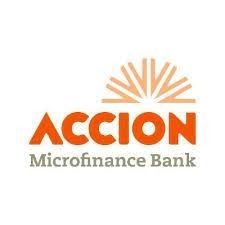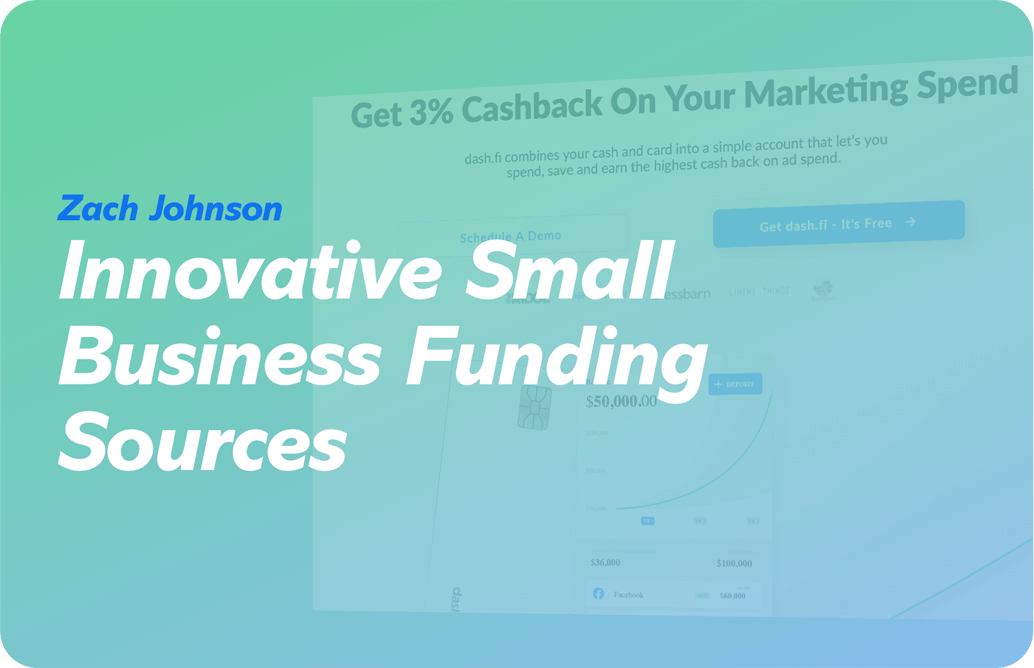Banks aren’t the only -- or even best way -- to get the money you need to scale your business.

When asked why he robbed banks, notorious 1930s era robber Willie Sutton simply replied, “Because that's where the money is.” However, when it comes to small business funding, times have changed -- a lot. Today there are lots more places where the money is. If you know where to look.
Here are 22 great small business funding sources you probably never heard of:
Peer-to-Peer Lending

Explaining your exciting new business concept to a banker can be challenging. Traditional lenders might raise an eyebrow if you came to them with an idea for a business that offered Head Lice Removal, sold Synthetic Wishbones, or welcomed felines into a cozy Cat Cafe. All rather unusual business ideas that actually ended up being quite successful, by the way.
Often time it’s much easier to explain it to your peers who get your vision. But instead of hitting up your college friends or putting the squeeze on your wealthy aunt, you might try these websites to get the small business funding you need to get your startup going.
1. Prosper
With $3 billion given out in loans, Prosper is an incredibly successful peer-to-peer lending site. No wonder it has high name recognition in the peer-to-peer lending field.

How it works is that the lender gives you an interest rate that’s based on an evaluation. You create a compelling loan listing that helps investors understand your concept and what you need the funding for. Once one of Prosper’s investors agrees to fund your loan, they’ll give you the cash and create a payment plan. Rates for these loans start around 7% for safer bets but can come in as high as 35%.
2. LendingClub

If you’re beyond the startup phase and have been in business for a few years, but need some small business funding to help you grow, look into LendingClub. Like Prosper, LendingClub, loans are financed through investors. To be considered, you’ll need to have two years of business history, You’ll have to demonstrate that you’ve made at least $75,000 in annual sales. Plus you’ll need to have a good personal credit score. Loan repayment terms are pretty short. LendingClub has a five-year cap to pay back your loan. Like any loan, it will charge interest and come with additional fees.
3. Upstart

Little to no credit or financial history? No problem with Upstart. This lending option is designed to help young entrepreneurs get funding without the hoops most others require. The reason they can do this is that their underwriting model uses AI and nontraditional data to evaluate you based on job history, education level, and place of residence among other things. This results in requirements that are a whole lot looser than those traditional lenders demand. Instead, they look at what kind of forward-momentum and potential you and your business have.
The loan amounts aren’t huge. They top out at $50,000. But if you’re a young entrepreneur with big ideas and very little financial history, using Upstart can be a great way to consolidate high-interest debt or fund expansions to your business.
4. Funding Circle

Another investor-based peer-to-peer lending option for small business funding is Funding Circle. Their loans range from $25,000 to $500,000 and don’t take much time to get. To apply, you’ll speak with a loan manager who will walk you through the process. If you’re approved, you could get the money within two weeks.
Interest rates vary from 6% to 20%, depending on how quickly you pay back the loan. In addition to interest costs, there are loan origination fees and late fees if you miss a payment. You’ll definitely want to look at the rates and fees before you apply.
5. Peerform

Peerform is designed to be beneficial for both investors and small businesses. The online portfolio builder helps investors create unique and diversified portfolios specific to their financial goals and willingness to take on risks. For borrowers that have between a 600-700 credit score, it offers incredibly competitive rates, as low as six percent, on short-term loans up to $25,000.
While not the strongest choice to fund a full-on business expansion or startup, it can be a great way for a relatively healthy business to pay off debt, make a large purchase, or cover operational costs for a time.
Venture Capital

You don’t have to be a hotshot to tap into the resources that venture capital offers. But it pays to be popular. If there’s strong initial interest in your business concept and you’ve formulated a solid roadmap for long-term growth, venture capital for funding may be a good option.
But where to start? A place is the Small Business Administration. You can use the SBA investment finder to find potential investors. Or use one of the following platforms to pitch your business idea and attract venture capitalists.6. FundersClub

One of the earliest online venture capitalist crowdfunding platforms, FundersClub originally emerged from the YCombinator back in 2012. If you’re a business you can either be solely funded by specific investors. Or you can be aggregated with similar businesses and presented as part of a diversified fund that venture capitalists can invest in.
Although FundersClub is a terrific way to get your company in front of hundreds of accredited investors there is one drawback. And that is actually getting on the platform itself is pretty hard to do. For starters, they only accept approximately 2% of applicants. What’s more, they even recommend that one of their founders recommend your business before you apply. But if you’ve got a strong pitch and are willing to reach out to the founders to get their thumbs up, it’s one of the most worthwhile small business funding sources.7. MicroVentures

The other early online venture capital platform is MicroVentures. They have a significant track record of being one of the best small business funding sources for early-stage startups. Originally they only offered traditional angel investment and venture capital options to accredited investors. The good news is that they’ve adapted their platform to make specific investment opportunities available to anyone. This development is a particularly great opportunity for business owners who are looking for funding. Because it means that the field of potential investors is even larger.
But be away, this expanded roster of potential investors does have its drawbacks. Because it’s also expanded the field of businesses looking for investment on the site. Consequently, your business may get lost in the shuffle if you don’t have a compelling pitch or have an angle that makes you stand out. But when it comes to small business funding sources, MicroVentures is worth taking a look at as one of your options.
Angel Investment

Because they don’t require you to pay back the funding, you might look at angel investors as heaven-sent. But there are strings attached. An angel investor is typically an individual or group that has available funds that they want to invest in a start-up or expansion. The best thing about having an angel investor fund your business is that it is far less risky than a loan or venture capital. That’s because as I mentioned earlier, you typically don’t have to repay the funds. Here’s where the strings come in. Instead of repayment with interest, an angel investor wants some sort of share in your business. In return, they are willing to look further ahead beyond seeing any kind of immediate return on their investment.
So if you’re willing to give up some control in return for the benefits of an angel investor, here are some great options to help your business venture take flight.
8. Gust

Gust puts wind beneath your wings by operating as both an investment matching network and a tool to make your business more attractive to investors. Regardless of where you are in terms of the stage of your startup, Gust can help you prepare to make a successful pitch for funding in a number of ways. They can help you organize the required documentation, set benchmarks, and identify gaps in your team. They also have a variety of other methods to grow and improve your business. Gust’s goal is to make your business proposition look like a no-brainer funding decision to angel investors.
9. CircleUp

Own a retail company? Sell consumer goods? CircleUp may be one of the best sources for small business funding around. Using their proprietary Helio machine learning platform, CircleUp’s mission is to provide funding to as many early-stage entrepreneurs as possible.
Their Hello platform takes publicly available, partner, and private data (provided by entrepreneurs) and aggregates the information into a clear, concise, instantly “gettable” scenario that promotes the future potential of a business.
This platform even helps CircleUp identify business opportunities that harness emerging trends. This incredibly helpful feature can be marketing gold for business owners that may not be aware of how to leverage it.
Offering both credit and equity financing, CircleUp is a diverse option that’s great for those seeking angel investment that also provides insight they can leverage to improve their business.
10. Angel Capital Association

The Angel Capital Association (ACA) is a great place to start researching angel funding options. It’s basically a hub for a network of angel investment organizations across North America. Not a direct source of funding, it is more of an opportunity to connect with and build relationships with over 18,000 angel investors, the ACA. The group was designed to focus on bringing in angel groups rather than individual investors.
Less cutting edge than other options, it’s still a great way to learn about and learn from investors across a broad spectrum of industries. It can be a great tool for growing your business even if you aren’t looking for funding.
Microloans

Don’t need a ton of money? Look into microloans which are basically smaller business loans. An interesting aspect of these smaller funding options is that they ignited the explosion of fintech organizations that eventually got big enough to offer traditional loans as well as microloans. Be aware that there are usually specific limits on how much funding you can get with a microloan. But it might be a good fit if you just need a small amount of money to pay for operational costs, expansions, or projects.
11. Accion

Accion is a global nonprofit microloan funder whose primary goal is to help small businesses forge strong funding partnerships. In addition to funding, the organization also provides advisory services and strives to be a leading thought leader that champions financial inclusion.
To that end, they offer funding opportunities that are focused on growing organizations that work to promote global financial inclusion. Although it is not a traditional microlender, it does make sure that any investment or partnerships follow specific methodologies and goals. If that lines up with your company’s mission, Accion may be an option that could be right for you.
12. LiftFund

LiftFund offers an incredibly wide variety of loans. In addition to microloans, they also offer traditional loans and SBA options as well. That means the range for loan amounts goes from as little as $500 up to one million. If you’re an extremely new small business or you don’t make enough in monthly revenue to qualify for traditional loan options, LiftFund might be among the small business funding sources you should pursue.
A significant downside is that LiftF has limitations that are similar to local SBA or credit unions locations. Among those, are the fact that if they don’t operate in your area you won’t be able to get a loan from them.
13. Kiva

Kiva is a terrific online portal for microloans. Their application process is very simple and the terms can’t be beat. US small businesses can take out up to $15,000 in loans at an incredibly low 0% interest rate. You start by inviting friends and family to help fund you. You then set up a 30-day fundraiser to solicit funding from the Kiva lending community.
Once you receive your funding, you’ll have up to 3-years to repay the loan. You can also use Kiva as a marketing platform to help build your customer base and speed up the time it takes to repay the loan.
14. Opportunity Fund

Are you a new immigrant? A person of color? A woman who is starting up a business? And not rolling in money? Opportunity Fund was made for you. They operate strictly as a microloan provider for small businesses owned by low-and-moderate-income immigrants, people of color, and women. Their aim is to foster growth in low-income communities by helping entrepreneurs that often have trouble getting funding.
Pitch Competitions

Want to get your hands on funding and have a good time doing it? You can by entering one of many “Shark Tank” type contests that are held at various times during the year.
15. Hatch Pitch

If your company is creating a product or service based on innovative technology, you trot out your idea during Hatch Pitch. At this event that takes place each year at South by Southwest (SXSW), you’ll have four minutes to make your case to a panel of judges. A thumbs up gets you funded.
16. TechCrunch Disrupt

In the past, Disrupt was held in person but has transitioned to going all digital this year. The event, which is sponsored by TechCrunch, is geared toward hearing from tech founders and networking to find ways to build your business. Here you’ll have the chance to connect with fellow entrepreneurs in similar industries, pitch your business to investors and founders, and pick the brains of the best and the brightest minds in Silicon Valley.
Although it’s not a traditional pitch competition, Disrupt is a great place for new businesses to strut their stuff and connect with founders who are up for offering their advice and insights.
17. WebSummit PITCH

If you’ve gotten less than $3 million in funding, you can participate in a PITCH competition. To qualify to apply for the competition, you have to be part of the Web Summit Startup Program which you can apply to join here. Being among the 135 startups who participate has a lot of benefits. Chief among them is that even if you aren’t the winner, you’ll get lots of exposure to lenders and investors. It also gives you a way to refine your pitch by presenting it in front of investors. It takes a bit of doing to get involved, but it’s well worth doing if you’re an early-stage startup.
Bootstrapping

Bootstrapping, aka “pulling yourself up by your own bootstraps” is basically doing whatever it takes to get a hold of small business funding sources. It’s the choice for founders who don’t want to go into debt, give up partial control of their company, or stand on their heads to get funding. Even if you do get some outside funding, you’ll probably end up doing some kind of bootstrapping to fund your business. Here are some small business funding sources that qualify as bootstrapping:
18. Friends and family

Nobody knows your or your business better. Which is why this tried and true method that taps into the people in your life to put their money where their hearts are can be very effective. Check out this article for tips on navigating fundraising from friends and family.
19. Business line of credit
If you’ve got good credit, a business line of credit can get you cash fairly quickly This is an option for those who need cash quickly and have fairly good credit.
20. Service or product presales

Say you’re starting a lawn cutting business that needs to raise money to buy mowers before you can get off the ground. To raise the money you could “pre-sell” lawn cuttings. You could ask to give you funds the funds you now in return for “pre-paid” lawn cuttings later after you bought your mowers.
21. Using your savings/selling assets

If you are super confident in your business idea, there are various ways you can self-fund. If you have personal funds that are sitting in a savings account that you can afford to use to fund your business, that’s a no-interest, if high-risk option. Hollywood has plenty of filmmakers who funded their films by taking cash advances from their credit cards. If you own a home, there’s always a home equity line of credit where the interest rate is low and you can usually write off the interest on your taxes.
22. Using other income to fund your business

If you have a regular job that you can do while you’re getting your new business up and running you can use any discretionary money from that for funding. You can also do things like renting a room in your house through a site like Airbnb or even renting your yard or property out to dog owners to run their dogs with SniffSpot.
Whether it’s traditional loans or small business funding sources that are more “out there”, the bottom line is that the money is out there. Hopefully, these options have sparked some ideas and encouraged you to think outside of the box to get the funds your business needs to grow.
The average small business has 5 credit cards with a balance of about $32k that they have to keep track of. There’s a better way than rotating through dozens of low-limit credit cards to get the funding you need to scale when you can get it all with AdCard — the best card for Facebook ads with the high limits and the cashback you need to grow your business.


